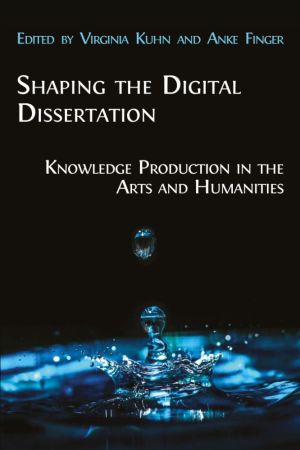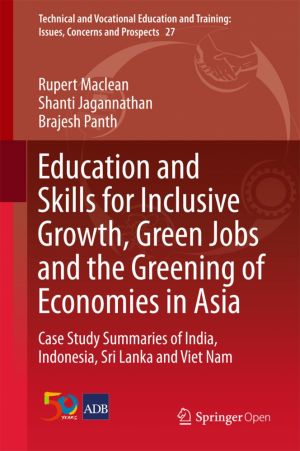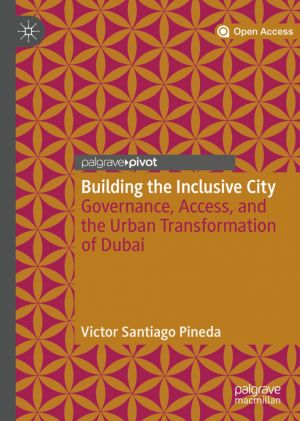
This book examines the much-debated question of how to unleash the potential of young people with promising intellectual abilities and motivation. It looks at the increasingly important topic of excellence in education, and the shift in focus towards the provision of programs to support talented students in higher education. It provides a systemati...

The authors of this book advise the economies of the European Union to become more entrepreneurial in promoting innovation and economic growth. The authors propose a reform strategy with respect to several aspects to achieve this goal. Starting with the rule of law and the protection of property rights; the tax system; the authors deal with regulat...

This book bridges the disciplinary boundaries within the social sciences to explore the role of social institutions in shaping geographical contexts, and in creating new knowledge. It includes theorizations as well as original empirical case studies on the emergence, maintenance and change of institutions as well as on their constraining and enabli...

This book shows the factors linking information flow, social intelligence, rights management and modelling with epistemic democracy, offering licensed linked data along with information about the rights involved. This model of democracy for the web of data brings new challenges for the social organisation of knowledge, collective innovation, and th...

This open book presents case studies of twelve organisations which the public have come to view as institutions. From the BBC to Doctors Without Borders, from the Amsterdam Concertgebouw Orchestra to CERN, this volume examines how some organisations rise to prominence and remain in high public esteem through changing and challenging times. It build...

Digital dissertations have been a part of academic research for years now, yet there are still many questions surrounding their processes. Are interactive dissertations significantly different from their paper-based counterparts? What are the effects of digital projects on doctoral education? How does one choose and defend a digital dissertation? T...

This collection examines how higher education responds to the demands of the automation economy and the fourth industrial revolution. Considering significant trends in how people are learning, coupled with the ways in which different higher education institutions and education stakeholders are implementing adaptations, it looks at new programs ...

'Transgovernance: Advancing Sustainability Governance' analyses what implications recent and ongoing changes in the relations between politics, science and media – together characterized as the emergence of a knowledge democracy – may have for governance for sustainable development, on global and other levels of societal decision mak...

This book presents an ethnographic study of how grassroots activism in Venezuela during the Chávez presidency can be understood in relation to the country's history as a petro-state. Taking the contested relationship between the popular sectors and the Venezuelan state as a point of departure, Iselin Åsedotter Strønen explores how notions s...

Higher education in Europe and beyond faces a series of major challenges. The economic crisis has accelerated expectations of an increased role in addressing economic and societal challenges while, at the same time, putting pressure on available finances. Broader trends such as shifting student demographics and expectations, globalisation and mobil...

Given the manifold challenges of financial sectors in developing and transition countries, one might be tempted to believe that embarking on "green" finance is not a priority for financial systems development. However, there are a number of arguments against this view. Environmental finance, particularly energy efficiency and renewable en...

The multiple purposes of nature - livelihood for communities, revenues for states, commodities for companies, and biodiversity for conservationists - have turned environmental governance in Latin America into a highly contested arena. In such a resource-rich region, unequal power relations, conflicting priorities, and trade-offs among multiple goal...

This book analyses the interplay between governing, evaluation and knowledge with an empirical focus on Swedish higher education. It investigates the origins, logics, and mechanisms of evaluation and quality assurance reforms and their dynamic interactions with institutional, national and European policy contexts. The chapters report findings from ...

This book asks why and how some of the developing countries have "emerged" under a set of similar global conditions, what led individual countries to choose the particular paths that led to their "emergence," and what challenges confront them. If we are to understand the nature of major risks and uncertainties in the world, we m...

Higher education has thrived in Europe for the last three decades supported by the powerful policy narratives of the European construction and knowledge society. The two together called for better-integrated societies with higher economic competitiveness, superior employment, and social cohesion. Extraordinary developments in higher education durin...

This book provides answers to key open questions concerning competition policy in emerging economies, with a focus on South Eastern Europe. The contributions address two major issues. One is the design of competition policy and the national competition authorities that enforce it, including the topics of competition advocacy and state aid control; ...

This book builds on the European Union's (EU) Horizon 2020 project 'Financial and Institutional Reforms for an Entrepreneurial Society' (FIRES). The authors outline how Europe can move towards more inclusive, innovative and sustainable growth through reforms that will rekindle its entrepreneurial spirit. Based on decades of research ...

This book examines the kinds of transitions that have been studied in mathematics education research. It defines transition as a process of change, and describes learning in an educational context as a transition process. The book focuses on research in the area of mathematics education, and starts out with a literature review, describing the epist...

This book analyses Iberian expansion by using knowledge accumulated in recent years to test some of the most important theories regarding Europe's economic development. Adopting a comparative perspective, it considers the impact of early globalization on Iberian and Western European institutions, social development and political economies. In ...

This edited volume examines the policies and practices of rising powers on peacebuilding. It analyzes how and why their approaches differ from those of traditional donors and multilateral institutions. The policies of the rising powers towards peacebuilding may significantly influence how the UN and others undertake peacebuilding in the future. Thi...

This book is the first comparative study of public, voluntary and private asylums in nineteenth-century Ireland. Examining nine institutions, it explores whether concepts of social class and status and the emergence of a strong middle class informed interactions between gender, religion, identity and insanity. It questions whether medical and lay e...

This book presents the results of the Interdisciplinary Research Group "Society – Water – Technology" of the Berlin-Brandenburg Academy of Sciences and Humanities. It describes interdisciplinary evaluation criteria for major water engineering projects (MWEPs) and portrays an application to the Lower Jordan Valley (Middle East) and th...

This book written by international experts in the field of educational innovation is a guide for universities to become world-class universities. It contributes to the current international intellectual debate on the future of higher education. It also tells the story of King Abdulaziz University in Jeddah (Saudi Arabia) and its effort to become a ...

Swiss citizens approve of their government and the way democracy is practiced; they trust the authorities and are satisfied with the range of services Swiss governments provide. This is quite unusual when compared to other countries. This book provides insight into the organization and the functioning of the Swiss state. It claims that, beyond poli...

In recent years, the European Commission has attached increasing importance to the use of financial engineering instruments rather than traditional grant-based financing for the microcredit sector, considering these to be the most efficient option available.
This book presents a study of capacity building and structural funds in public managing au...

At the core of institutional theories, 'values' is a central term and figures in most definitions; however it remains understudied and under-explored. The editors of this open access book identify a resurgence of interest in the values-construct which underpins discussions of identity, 'ethos' and the purpose/nature of public an...

This free book describes the history, structure and institutions of open and distance education in six countries: Australia, Brazil, Canada, Germany, the UK and the US. It discusses how open and distance education is evolving in a digital age to reflect the needs and circumstances of national higher education systems in these countries, and explore...

This book explores how the notion of the responsible university manifests itself at various levels within Nordic higher education. As the impetus of the knowledge society has catapulted the higher education sector to the forefront of policy agendas, universities and other types of higher education institutions face increasing scrutiny, assessment a...

This book presents an overview of the main research findings and case studies concerning education and skills for inclusive growth, green jobs and the greening of economies. Focusing on India, Indonesia, Sri Lanka and Viet Nam, it discusses government and business sector responses to these issues and how Technical and Vocational Education and Train...

This book describes the history, structure and institutions of open and distance education in six countries: China, India, Russia, Turkey, South Africa and South Korea. It describes how open and distance education is evolving in a digital age to reflect the needs and circumstances of the national higher education systems in these countries. It al...

This free book explores how digital tools and social media technologies can contribute to better participation and involvement of EU citizens in European politics. By analyzing selected representative e-participation projects at the local, national and European governmental levels, it identifies the preconditions, best practices and shortcomings of...

"A landmark study showing how empirical work, through the methodology of the social sciences, can come into contact with political philosophy and disability studies so as to make a meaningful contribution to policy. Dr. Victor Santiago Pineda's work will be read for decades, as a foundation for future research on the application of the ca...
